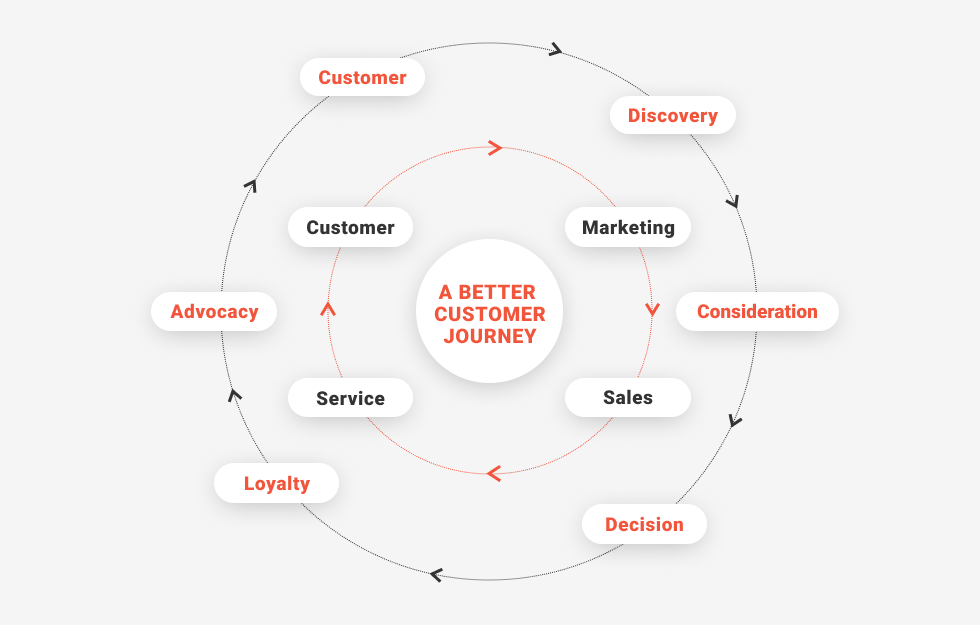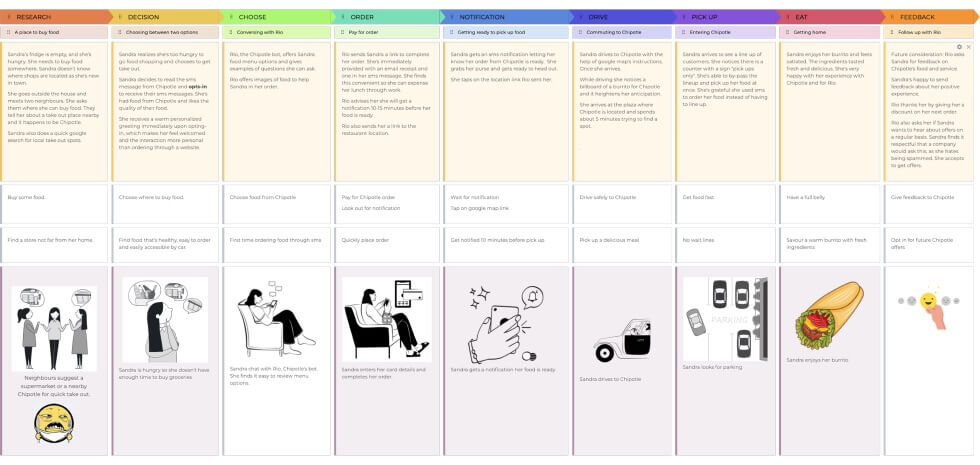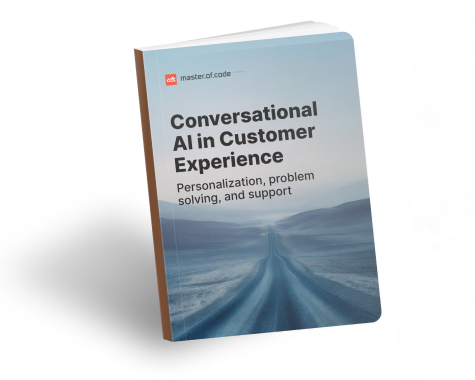Table of Contents
What are Customer Journey Maps?
Customer journey maps are a visualization method to investigate user experiences. They consist of user personas, user flows, and scenarios based on qualitative and quantitative data. This data can help stakeholders and Conversation Design specialists develop empathy for the virtual assistant’s end users.
The practice of mapping creates a deep insight into the industry, brand, competitors, services, products, and users. These dynamic documents need to be updated regularly by engaging stakeholders across the entire enterprise to provide many perspectives. The act of journey mapping demands a shift from multichannel to omnichannel in order for customers to move freely.

By leveraging these journey maps organizations can understand how customers interact with various touchpoints within their customer-facing channels, from websites to apps to conversational solutions. With better understanding comes opportunities to further optimize lead generation, sales funnels, increased revenue, and customer satisfaction. These documents become a prompt for designers to ensure that every step of a journey needs to flow in a natural, frictionless, and efficient way.
The Importance of Journey Mapping in Conversational AI
Customer journey mapping is critical when designing Сonversational AI experiences. When businesses invest in AI, it’s often added to new conversational channels, becoming the new, more efficient home for existing use cases that may currently require interactions with multiple websites or GUIs. These use cases need to go beyond reducing wait times and automating FAQs to providing adequate support to ensure convenience and meet customer needs.
How can we make sure this new solution is better than the current state? By mapping out all steps that customers take along with identifying their goals, motivations, and challenges. This map will become the reference point a conversation designer will use to ensure that whatever they design for the new conversational experience must offer more value, efficiency, fewer steps, and a better customer experience than how users are completing tasks or converting today.

Tips to Utilize When Building Out a Customer Journey Map
The following list is our recommended steps conversation designers should follow when building out your customer journey map:
- Align on project goals before map development.
- Interview a large, diverse set of customers (not just the loyal ones) to understand goals, motivations, pain points, and all steps within the journey.
- Involve internal and external stakeholders to drive changes from journey map analysis and promote buy-in from management.
- The mapping process should result in a list of actionables to drive accountability.
- Leverage collaborative customer journey mapping platforms or templates to add your qualitative and quantitative data. We like UXpressia and Miro.
- Use a prioritization matrix to distribute your resources smartly; start with the most problematic steps in the journey to reduce friction.
- Focus on all stages of interaction (awareness, comparison, purchase, etc.)
- Add key performance indicators to ease the process of decision-making that will inform a conversation designer’s design.
- If optimizing an existing conversational solution, showcase chatbot analytics such as the Net Promoter Score and Customer Satisfaction Scores to identify opportunities for optimization at different stages of each journey.
- A conversation analytics layer strengthens this process by revealing drop-off points, intent mismatches, and friction moments across the journey—turning the map into a living optimization tool rather than a static artifact.
- Regularly update the journey map with new data.
Example of a customer’s journey ordering a burrito for lunch using an SMS chatbot.








